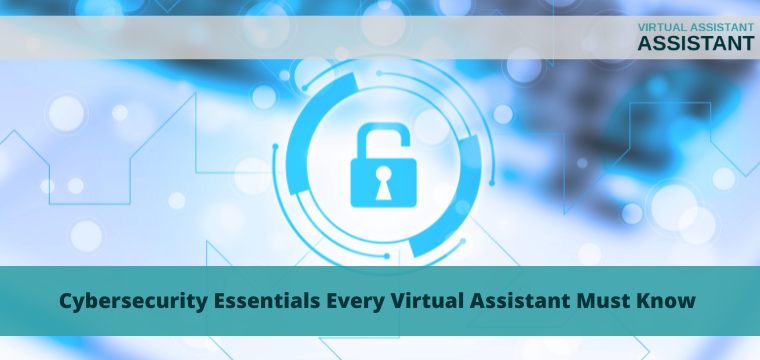 7 Essential Tips for Managing eCommerce Operations
7 Essential Tips for Managing eCommerce Operations
Running an eCommerce can be fast-paced and demanding. Orders flood in, inventory levels shift, customers demand instant updates, and your systems struggle to keep up. Poor operations management leads to missed sales, frustrated customers, and sleepless nights.
Effective eCommerce operations management brings structure and clarity to your business. When your processes are streamlined, you reduce bottlenecks, improve customer satisfaction, and create the foundation for consistent, scalable growth.
1. Automate Your Order Processing and Inventory Management
Manual order processing is a recipe for errors and delays. Every minute spent manually updating inventory or processing orders is time stolen from growing your business.
AI-powered inventory tracking systems monitor stock levels in real-time across all sales channels. These systems prevent overselling and automatically update product availability as orders come in. You’ll never again deal with angry customers who ordered products you don’t have.
Key automation features to implement:
- Automated reorder points that trigger purchase orders when stock hits predetermined levels
- Real-time inventory sync across multiple sales channels (website, Amazon, eBay)
- Automatic order routing to the nearest fulfillment center
- Barcode scanning for accurate inventory counts
Streamlined order workflows eliminate bottlenecks from placement to shipping. Modern systems can automatically generate picking lists, print shipping labels, and send tracking information to customers without human intervention.
The investment in automation pays for itself within months through reduced labor costs and fewer costly mistakes.
2. Outsource Fulfillment to Scale Efficiently
Handling fulfillment in-house becomes overwhelming as order volume grows. Packing boxes in your garage works for 10 orders per day, but becomes impossible at 100+ orders.
Third-party logistics (3PL) providers specialize in warehousing, picking, packing, and shipping. They leverage economies of scale to offer services you couldn’t afford independently. Professional fulfillment centers use advanced technology and optimized processes to ship orders faster and more accurately than most in-house operations.
Many successful eCommerce businesses track their operational efficiency metrics and productivity improvements as they transition from bootstrapped operations to professional fulfillment networks. Logistics and supply chain services like Productiv help entrepreneurs measure these scaling decisions and understand the ROI of operational changes. This helps them make smarter choices as their business expands.
Cost savings and scalability advantages:
- Reduced overhead costs (no warehouse rent, utilities, or equipment)
- Lower shipping rates through carrier negotiations
- Scalability during peak seasons without hiring temporary staff
- Access to advanced warehouse management systems
- Professional packaging that enhances brand image
Geographic distribution through multiple fulfillment centers reduces shipping costs and delivery times. Products stored closer to customers ship faster and cheaper, improving satisfaction while boosting profit margins.
3. Integrate Your Tech Stack for Seamless Operations
Disconnected systems create data silos that slow decision-making and increase errors. When your eCommerce platform doesn’t talk to your inventory system, you’re manually transferring data and making mistakes.
Connect your eCommerce platform with inventory management systems for real-time stock updates. When a product sells on your website, inventory levels should automatically decrease across all channels. This prevents overselling and maintains accurate product availability.
Sync with accounting and CRM systems to maintain unified customer and financial records. Automatic data transfer eliminates duplicate entry and ensures all departments work with the same information.
Essential system integrations:
| System | Integration Benefit | Key Data Flow |
| Inventory Management | Real-time stock updates | Product availability, reorder alerts |
| Accounting Software | Automated financial records | Sales data, tax calculations |
| CRM Platform | Unified customer profiles | Purchase history, support tickets |
| Email Marketing | Automated campaigns | Customer segments, purchase triggers |
For businesses managing remote teams or outsourced operations, virtual assistants can help coordinate these integrations and maintain system harmony. They ensure data flows correctly between platforms and troubleshoot integration issues quickly.
4. Leverage Data Analytics for Smarter Decisions
Flying blind leads to crash landings. Without data insights, you’re making critical business decisions based on gut feelings rather than facts.
Track key performance metrics that directly impact your bottom line. Conversion rates reveal how well your website turns visitors into buyers. Average order value (AOV) shows the effectiveness of your upselling strategies. Customer lifetime value helps you understand how much to spend on acquiring new customers.
Essential eCommerce metrics to monitor:
| Metric | Why It Matters | Target Range |
| Conversion Rate | Shows website effectiveness | 2-3% average |
| Cart Abandonment Rate | Identifies checkout issues | Under 70% |
| Customer Acquisition Cost | Measures marketing efficiency | 3:1 LTV ratio |
| Inventory Turnover | Indicates demand forecasting accuracy | 4-6x annually |
Predictive analytics transform historical data into future insights. These tools analyze seasonal patterns, customer behavior, and market trends to forecast demand accurately. You’ll stock the right products at the right time, reducing both stockouts and excess inventory.
Monitor customer behavior patterns to identify optimization opportunities. Heat maps show where visitors click, scroll depth reveals content engagement, and funnel analysis pinpoints where customers drop off.
5. Optimize Your Customer Experience Journey
Every friction point in your customer journey costs you sales. A complicated checkout process or limited payment options can turn eager buyers into abandoned carts.
Streamline your checkout process by reducing the number of steps required to complete a purchase. Guest checkout options eliminate the barrier of forced account creation. Auto-fill features speed up form completion, while progress indicators keep customers informed about remaining steps.
Provide multiple payment options to accommodate different customer preferences. Credit cards, PayPal, Apple Pay, and buy-now-pay-later expand your customer base. Each additional payment method can increase conversion rates by 2-3%.
Customer experience optimization checklist:
- One-page checkout process
- Guest checkout option available
- Multiple payment methods supported
- Mobile-optimized purchasing flow
- Clear shipping costs and delivery times
- Easy returns and refund policy
Real-time order tracking and communication build trust and reduce customer service inquiries. Automated emails at each fulfillment stage keep customers informed without manual effort. SMS updates for delivery notifications create a premium experience that encourages repeat purchases.
6. Build a Resilient Supply Chain Network
Single points of failure devastate eCommerce businesses. When your only supplier faces disruptions, your entire operation grinds to a halt.
Diversify suppliers across different geographic regions to reduce risk. Having backup suppliers for critical products ensures continuity when primary sources face problems. This strategy proved crucial during recent global supply chain disruptions.
Supply chain visibility tools provide real-time insights into your supplier network. These platforms track shipments, monitor supplier performance, and alert you to potential delays before they impact customer orders.
Resilient supply chain strategies:
- Primary and backup suppliers for each product category
- Geographic diversification to minimize regional risks
- Supplier performance scorecards for objective evaluation
- Long-term contracts with key suppliers for price stability
- Buffer inventory for critical fast-moving products
Modern businesses require sophisticated approaches to supply chain management that go beyond traditional models. Building a resilient supply chain involves implementing comprehensive strategies that can withstand various types of disruptions while maintaining operational efficiency.
7. Implement Continuous Process Improvement
Standing still means falling behind in eCommerce. Markets change rapidly, customer expectations evolve, and competitors constantly innovate.
Regular performance audits identify inefficiencies in your operations. Monthly reviews of key metrics reveal trends and opportunities for optimization. Focus on processes that directly impact customer satisfaction and profitability.
A/B testing applies to operational processes, not just marketing campaigns. Test different packaging methods, shipping carriers, or inventory allocation strategies to find optimal approaches. Small improvements compound over time into significant competitive advantages.
Process improvement framework:
- Monthly operational performance reviews
- Quarterly process optimization initiatives
- Annual technology stack evaluations
- Continuous employee training and development
- Regular customer feedback collection and analysis
Stay agile and adapt to market changes by maintaining flexible systems and processes. Rigid operations struggle when markets shift, while adaptable businesses thrive during change.
Key Takeaways for eCommerce Operations Success
Streamlined operations create competitive advantages that are difficult for competitors to replicate. Focus on automation to reduce errors and free up time for strategic activities. Data-driven decisions consistently outperform gut instincts.
Customer experience optimization directly impacts revenue and retention. Every improvement in your buying process translates to increased sales and customer loyalty.
Technology integration eliminates inefficiencies and provides the foundation for scalable growth. Invest in systems that grow with your business rather than quick fixes that create future bottlenecks.
Implementation priority order:
- Start with order processing automation for immediate impact
- Implement data analytics to guide future decisions
- Optimize customer experience based on data insights
- Evaluate fulfillment options as volume increases
Conclusion
Streamlined eCommerce operations management separates successful businesses from struggling ones. The strategies outlined above provide a roadmap for transforming chaotic processes into predictable, profitable systems.
Start implementing these changes incrementally rather than attempting everything simultaneously. Focus on one area at a time, measure results, and build momentum through early wins.
Your customers will notice the improvements through faster shipping, better communication, and fewer errors. Your bottom line will reflect the efficiency gains through reduced costs and increased sales. Begin today with the strategy that addresses your biggest operational pain point.
Read More



 VirtualStaff.ph vs Outsourcing Agencies: Cost, Control, and Quality Compared
VirtualStaff.ph vs Outsourcing Agencies: Cost, Control, and Quality Compared
 The Rise of Virtual Assistants: Revolutionizing Work and Daily Life
The Rise of Virtual Assistants: Revolutionizing Work and Daily Life Cybersecurity Essentials Every Virtual Assistant Must Know
Cybersecurity Essentials Every Virtual Assistant Must Know How Virtual Assistant Services Can Make a Boom Lift Business More Profitable in 2025
How Virtual Assistant Services Can Make a Boom Lift Business More Profitable in 2025 How Virtual Assistants Can Support IT Teams with Remote Office Setups
How Virtual Assistants Can Support IT Teams with Remote Office Setups From Hiring Headaches to High Growth: How a Struggling Business Found Success with Online VA Team
From Hiring Headaches to High Growth: How a Struggling Business Found Success with Online VA Team